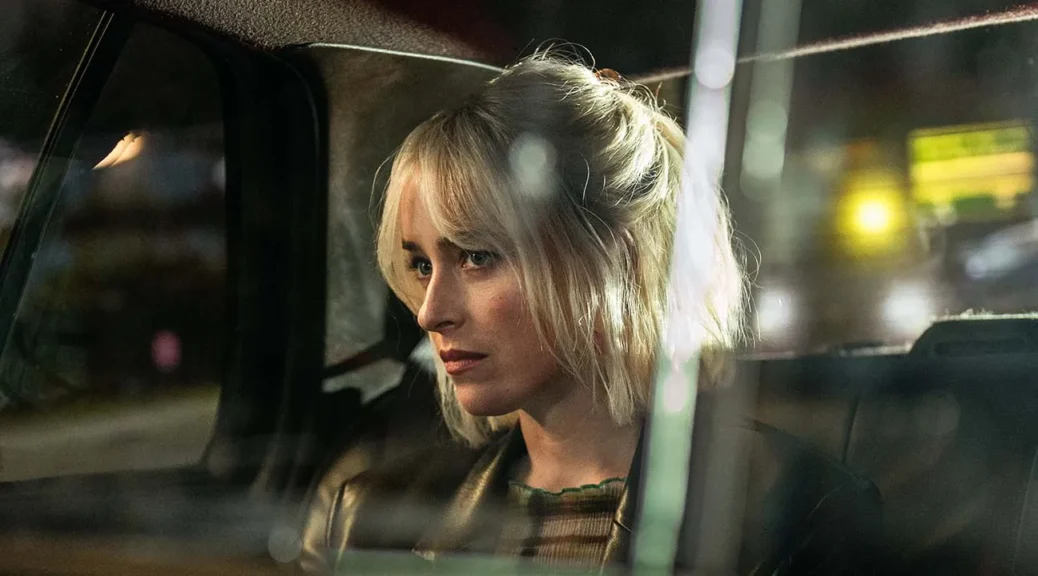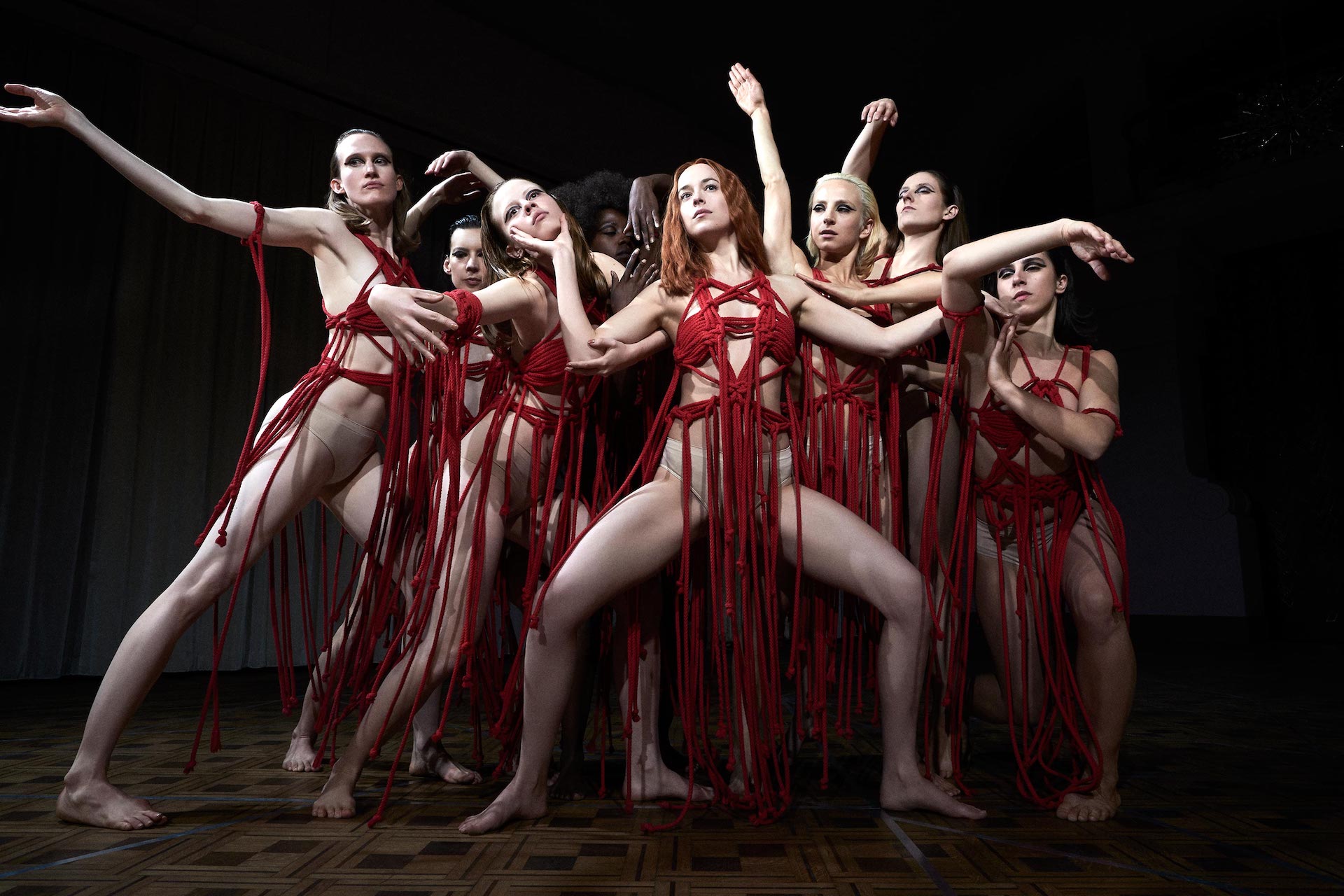Daddio
by George Wolf
I’m no math whiz, but I imagine there’s some theorem to explain how much acting talent needs to increase as a film’s cast of characters decreases.
Daddio is a classic two-hander, which means there’s plenty of heavy lifting for both Sean Penn and Dakota Johnson. And they prove to have strong backs, indeed, more than enough to cover the film’s occasionally heavy hands.
Johnson plays an unnamed woman coming back home to New York, and looking for a ride from JFK to midtown Manhattan. She piles in Clark’s (Sean Penn) Yellow cab, and isn’t long before he’s pleasantly surprised.
“It’s nice that you’re not on your phone.”
She’s distracted, but is drawn into a conversation by Clark’s description of how currency has evolved in his years behind the wheel. Clark reads his fare pretty well, and they agree that her job dealing with the zeros and ones in computer coding is just another way of balancing “true” and “false.”
But the woman eventually starts exchanging very provocative texts with a mystery someone, and she becomes more guarded when Clark starts probing her relationship status and offering his views on what men and women really want.
One thing women rarely want is to hear the word “panties.” Clark really should have known that.
In her feature debut, writer/director Christy Hall crafts an extended dialogue that ebbs and flows in compelling, organic and sometimes touching ways. Yes, the traffic jam that stops the cab dead seems pretty convenient, but Hall also keeps things visually interesting by varying our views of the texting thread and weaving the verbal banter through window reflections, focus pulls and front seat/back seat partitions.
But all of that would crumble if we don’t care about these two people, and these two actors make sure we do.
Penn’s Carl is just this side of a smug a-hole in the early going, but eventually lessens his own defenses enough to drop the street-wise sage persona and share parts of himself. Penn also seems willing to bring shades of his offscreen image into the cab, giving Carl an added layer of mischief.
“Girlie” has even more of a journey, and Johnson responds with perhaps her finest performance to date. She spars with Clark over philosophies on life and love, while revealing her reactions to incoming texts mainly through facial expressions alone. Johnson juggles both with nuance and emotional pull, taking an hour and forty-minute ride up to the next level of dramatic talents.
You may not applaud where each character stands at the end of the cab ride, but that’s not exactly the point here. Daddio (not gonna lie, still a little curious about that title) is about taking the time for human connection, and about how much understanding can come from truly listening to each other.
That’s not exactly a novel concept in our plugged-in world, but Daddio proves adding the right messengers can still deliver a resonate message.
Just do the math.











